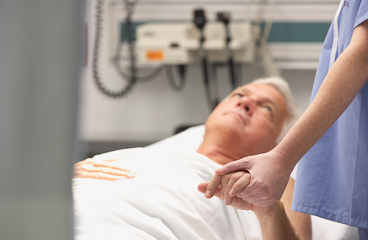
Your Care Instructions
After you've had surgery, you may feel sick to your stomach (nauseated) or you may vomit. Sometimes anesthesia can make you feel sick. It's a common side effect and often doesn't last long. Pain also can make you feel sick or vomit. After the anesthesia wears off, you may feel pain from the incision (cut). That pain could then upset your stomach. Taking pain medicine can also make you feel sick to your stomach.
Whatever the cause, you may get medicine that can help. There are also some things you can do at home to prevent nausea and feel better.
The doctor has checked you carefully, but problems can develop later. If you notice any problems or new symptoms, get medical treatment right away.
Follow-up care is a key part of your treatment and safety. Be sure to make and go to all appointments, and call your doctor if you are having problems. It's also a good idea to know your test results and keep a list of the medicines you take.
How can you care for yourself at home?
- Be safe with medicines. Read and follow all instructions on the label.
- If the doctor gave you a prescription medicine for pain, take it as prescribed.
- If you are not taking a prescription pain medicine, ask your doctor if you can take an over-the-counter medicine.
- Take your pain medicine as soon as you have pain. It works better if you take it before the pain gets bad.
- Call your doctor if you have any problems with your medicine.
- Rest in bed until you feel better.
- To prevent dehydration, drink plenty of fluids. Choose water and other clear liquids until you feel better. If you have kidney, heart, or liver disease and have to limit fluids, talk with your doctor before you increase the amount of fluids you drink.
- When you are able to eat, try clear soups, mild foods, and liquids until all symptoms are gone for 12 to 48 hours. Other good choices include dry toast, crackers, cooked cereal, and gelatin dessert, such as Jell-O.
- Do not smoke. Smoking and being around smoke can make nausea worse. If you need help quitting, talk to your doctor about stop-smoking programs and medicines. These can increase your chances of quitting for good.
When should you call for help?
Call 911 anytime you think you may need emergency care. For example, call if:
- You passed out (lost consciousness).
Call your doctor now or seek immediate medical care if:
- You have new or worse nausea or vomiting.
- You are too sick to your stomach to drink any fluids.
- You cannot keep down fluids.
- You have symptoms of dehydration, such as:
- Dry eyes and a dry mouth.
- Passing only a little urine.
- Feeling thirstier than usual.
- Your pain medicine is not helping.
- You are dizzy or lightheaded, or you feel like you may faint.
Watch closely for changes in your health, and be sure to contact your doctor if:
- You do not get better as expected.
Current as of: October 19, 2024
Author: Ignite Healthwise, LLC Staff
Clinical Review Board
All Ignite Healthwise, LLC education is reviewed by a team that includes physicians, nurses, advanced practitioners, registered dieticians, and other healthcare professionals.

